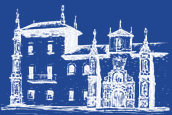Abstract
A personal recollection of USAC, a study abroad organization created so that U.S. students could spend time in the Basque Country learning about its history, culture and language. What circumstances led to its establishment, what issues were encountered and what strategies were implemented to overcome them? The piece describes how the Consortium was organized and financed and how it grew into one of the largest and most prestigious study abroad organizations in the U.S. This is an insiders account of the complexity of creating a study abroad consortium and managing it for its first 35 years.
DOI
https://doi.org/10.18122/boga.11.1.4.boisestate
Recommended Citation
Urza, Carmelo
(2024)
"The History of USAC: Innovation and Relationship Building,"
BOGA: Basque Studies Consortium Journal: Vol. 11
:
Iss.
1
, Article 4.
https://doi.org/10.18122/boga.11.1.4.boisestate
Available at:
https://scholarworks.boisestate.edu/boga/vol11/iss1/4


About the Author
Carmelo is a first -generation immigrant Basque who spent the first eleven years in America on a large sheep ranch off the Snake River in Idaho. His life’s work began in 1982 when he created a study abroad program for Boise State University and the University of Nevada in Donosti-San Sebastian to study its culture, language and history. That program continues to introduce students to the Basque Country 42 years later. He has published articles on the Basques and on literature, including a monograph entitled Solitude: Art and Symbolism in the National Basque Monument. USAC and Urza have been recognized by the Nevada World Trade Council, the Thornton Peace Prize, the Nevada Legislature, the city of San Sebastian (The Tambor de Oro), and the Society for Basque Studies in America. In 2024 he received the Distinguished Nevadan award from the Nevada System of Higher Education (NSHE) Board of Regents. He retired in 2018 as the head of the USAC.
Education